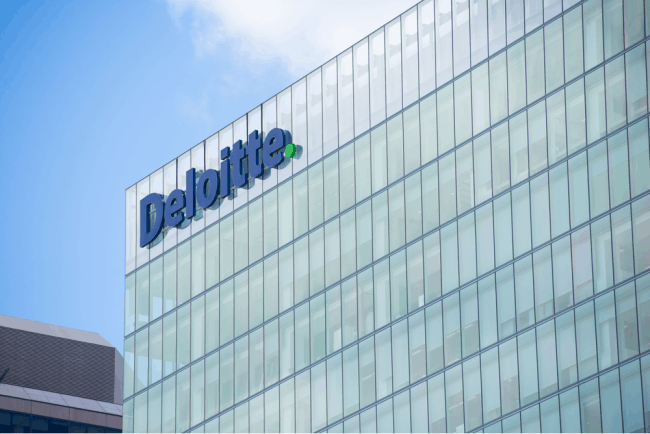
On the occasion of the 8th edition of the Millennials Survey, Deloitte wonders about the expectations of young people in a changing world. Gen Y (or Millennials) and Gen Z constitute a group of people who must be attentive to capture, anticipate, and understand current developments. In this new edition, Millennials' expectations of the world of work and their employment and consumer behaviors are heralding a transformation of the business model. Young people urge private organizations to change to meet the challenges of an increasingly fast-paced world and question their ability to evolve into a societal enterprise.
A keen awareness of the opportunities and risks associated with the transformations at work
Among the main markers that emerge from the study, young people seem to be aware of ongoing changes. 53% of Gen Ys and 48% of French Gen Zs currently in employment believe that with Industry 4.0, it will be more difficult to get a job or change jobs in the future. The increased workforce remains a new concept and still difficult to grasp.
In the same direction, they are lucid about the strengths and limitations of social networks, although the Gen Z stand out from their elders by a less mistrust: 62% of Gen Y and 56% of French Gen Z consider that, on the whole, social networks do more harm than good and about 50% of them consider that the benefits of new technologies outweigh the risks associated with sharing personal data.
In this context, the French Millennials have strong expectations towards companies: 20% of them think they are the best able to solve the most urgent global challenges, including climate change, distribution of wealth or even data protection. A confidence close to that they place in governments (28%) and in NGOs (21%). However, while 42% consider that companies in general have a positive impact on society, 83% of Gen Ys and 75% of Gen Zs agree with the idea that they favor their own goals rather than taking into account the whole of society. For Deloitte, this dissonance is interpreted more as a call to a more societal enterprise.
A stronger pessimism in France marked by a tense social climate
For Deloitte, the discrepancy between the speed and scale of ongoing transformations and the perception of a slow adaptation of companies is at the root of the concerns and skepticism of young people. Worldwide, 26% of them think that the economic situation will improve in 12 months. Only 12% of Millennials and 14% of Gen Z surveyed in France believe in this (compared to 33% in 2018). If France fits into the global trends, there is a gap between it and the rest of the world, characterized by a stronger negativity on most subjects. This is reflected in the "general mood" of the Gen Y and Gen Z which barely reaches respectively 23 and 27 points out of 100 compared with 48 points for emerging countries and 32 points for mature countries. The movement of yellow vests and the tense social climate of recent months may have influenced respondents. However, the French Gen Z also stand out by a strong optimism: 65% of them agree with the idea that there are no barriers preventing them from achieving their career ambitions. % of Gen Z in the world and 53% of French Millennials.
Towards a new business model
The pressing expectations towards them and the skepticism that accompanies them question the ability of private organizations to convert to the societal enterprise. For Deloitte, meeting the Millennials' expectations is about transforming the business model on three levels: maximizing its societal impact, interacting with its ecosystem, and building a positive work environment.
In this sense, in France, 40% of Y consumers and 36% of Z consumers have started or deepened a relationship with a company whose products have a positive impact on the environment or society. The expectations of young people reveal that today, companies are judged on their ability to generate a positive societal impact through the nature of the products and services they design.
This quest for meaning also involves alternative jobs: 76% of Gen Ys and 80% of Gen Zs plan to join the gig economy, which seems to offer the flexibility and autonomy aspired to by young people. 45% of Gen Ys and 58% of French Gen Zs expect to leave their current employer within 2 years. More than a question of loyalty, this figure reveals, according to Deloitte, a transformation of the employment model. This trend should encourage organizations to question their ability to interact beyond their "contractual" boundaries and to engage with their own talents in a relationship where professional development is viewed more broadly. However, if the Open talent upsets traditional patterns, it also foreshadows a possible economic and social precariousness.
In contrast to a disembodied organization, the Millennials aspire to a more human model and a management that resembles them, giving each individual the power of action and decision. The societal model proposes to make the company a place of life whose mode of organization is based on an increased collaboration between multidisciplinary and autonomous teams participating in a collective adventure.
"Young people disrupt the world today as much as they are disrupted," comments Laurence Monnet-Vernier, Human Resources Partner at Deloitte. "Their behaviors and adaptations are signs of profound changes in business, employment and consumption patterns, which actually cross all age categories. They strongly urge private organizations to change to meet the challenges of a world that is going faster and faster. Observing the trends that are emerging among young people should encourage companies to question their raison d'être and their ability to move towards a societal organization whose balance of power with its stakeholders is rebalancing."
Join us in Madrid, November 12-15 for the Global Online Marketplaces Summit.